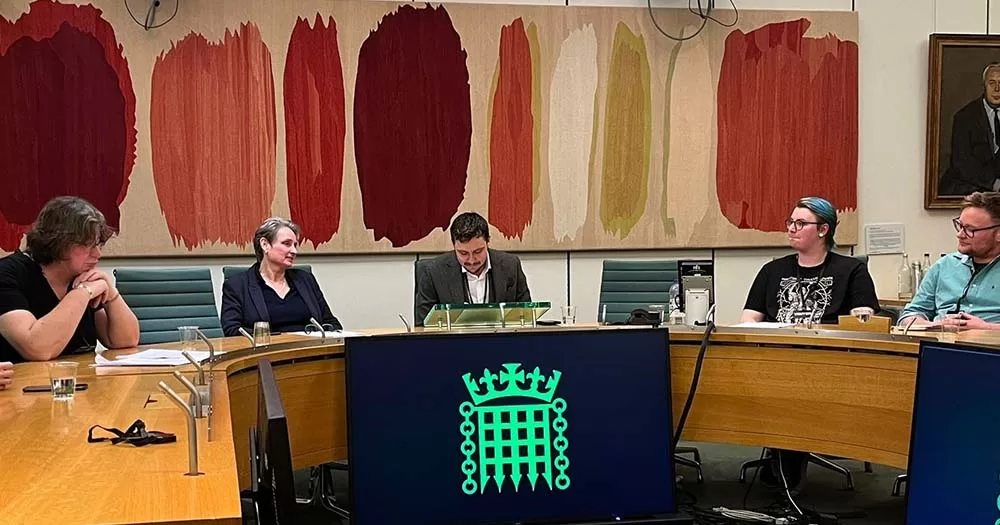On Tuesday, February 6, the UK Parliament hosted an all-trans panel where students, teachers and legal experts educated politicians about the experiences of transgender and non-binary children in schools.
The panel was organised by the Trans+ Solidarity Alliance and hosted by MPs Kate Osborne and Caroline Knox. It included accounts of what it feels like to be a transgender student in UK schools today and opened discussions about what needs to change to help gender-diverse students feel safe.
Jude Guatamachi, Trans+ Solidarity Alliance Director, opened the panel by sharing, “Trans solidarity is needed more than ever in the UK….Many discussions are happening about us without us. It is time for trans people to be part of the conversation and have our voices heard rather than ignored, to speak up and defend.”
Young transgender students, legal experts, and long-time campaigners for trans rights took turns sharing their insights, expertise and experiences. During these discussions, speakers directly addressed MPs, Lords and staff about how the education system has failed them.
Pleased to host what I believe was the first all Trans panel in parliament this evening (tell me I’m wrong!)
A brilliant panel of experts briefed politicians on challenges faced by teachers, schools & parents trying to keep trans & gender diverse children safe in education. pic.twitter.com/zyHk2RikXI
— Kate Osborne MP (@KateOsborneMP) February 6, 2024
The event was organised in response to the UK Government’s draft guidance for schools on supporting trans, non-binary and gender-fluid pupils.
The proposed guidelines permit teachers and staff to refuse to use trans students’ correct pronouns and direct staff to take a “cautious approach” when allowing students to change their names or clothing to fit their gender identity. The guidance further states that schools are not required to let transgender students access the bathrooms, showers or locker rooms for their gender.
The guidelines include combative language that describes “gender identity ideology” as a “contested belief,” terms the Human Rights Watch has seen far-right groups use in an attempt to restrict LGBTQ+ rights. Stonewall UK previously voiced concerns about the draft language, describing the proposed guidelines as “chilling” and “actively dangerous”.
Many LGBTQ+ educators fear that under these new guidelines, it will be difficult to support transgender and gender-questioning students. According to a 2021 report by Just Like Us, transgender children are already more likely to experience bullying and less likely to have close friends compared to their cisgender peers.
The panel presented an urgent need to support the trans community in schools, and MPs and Lords in attendance described the accounts shared on the panel as “distressing”. Ultimately, panellists advocated for, “compassionate, common-sense education that treats trans kids with the care and respect they deserve” so that students can thrive in school and focus on learning.
© 2024 GCN (Gay Community News). All rights reserved.
Support GCN
GCN is a free, vital resource for Ireland’s LGBTQ+ community since 1988.
GCN is a trading name of National LGBT Federation CLG, a registered charity - Charity Number: 20034580.
GCN relies on the generous support of the community and allies to sustain the crucial work that we do. Producing GCN is costly, and, in an industry which has been hugely impacted by rising costs, we need your support to help sustain and grow this vital resource.
Supporting GCN for as little as €1.99 per month will help us continue our work as Ireland’s free, independent LGBTQ+ media.
